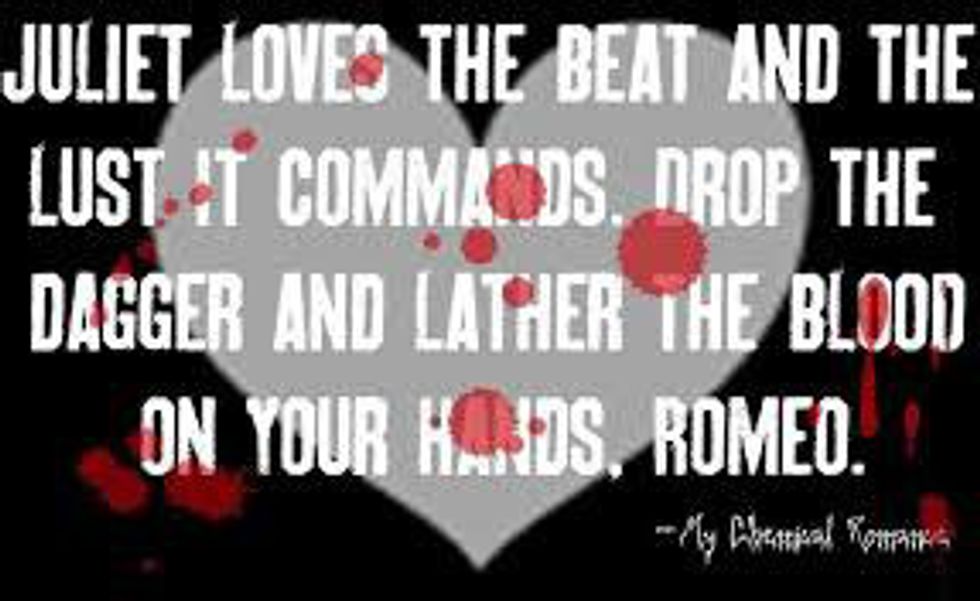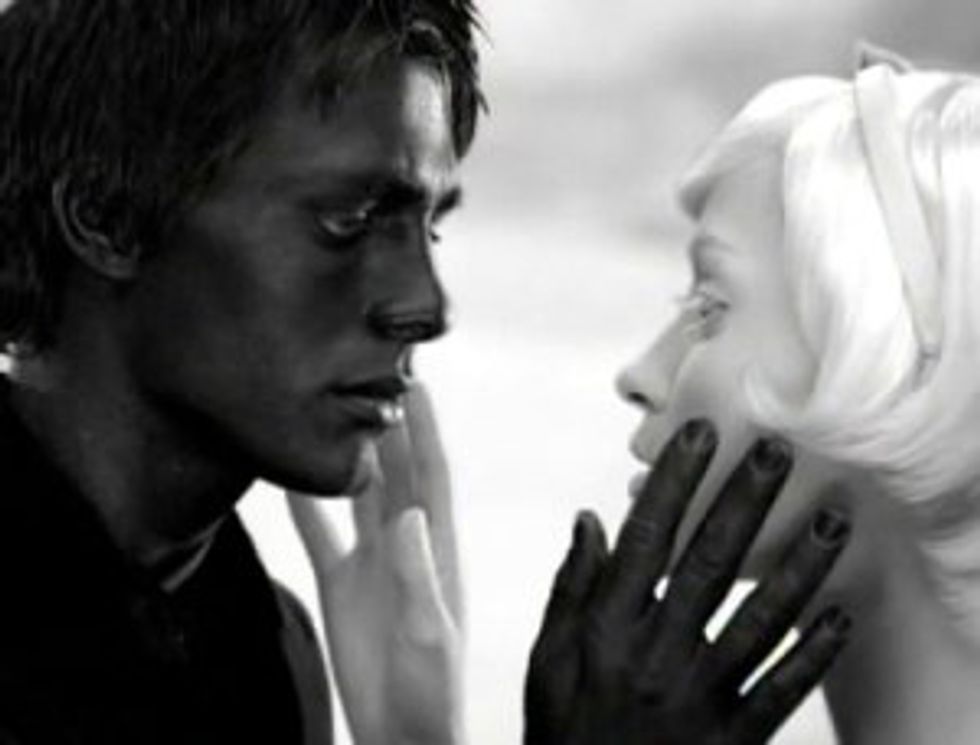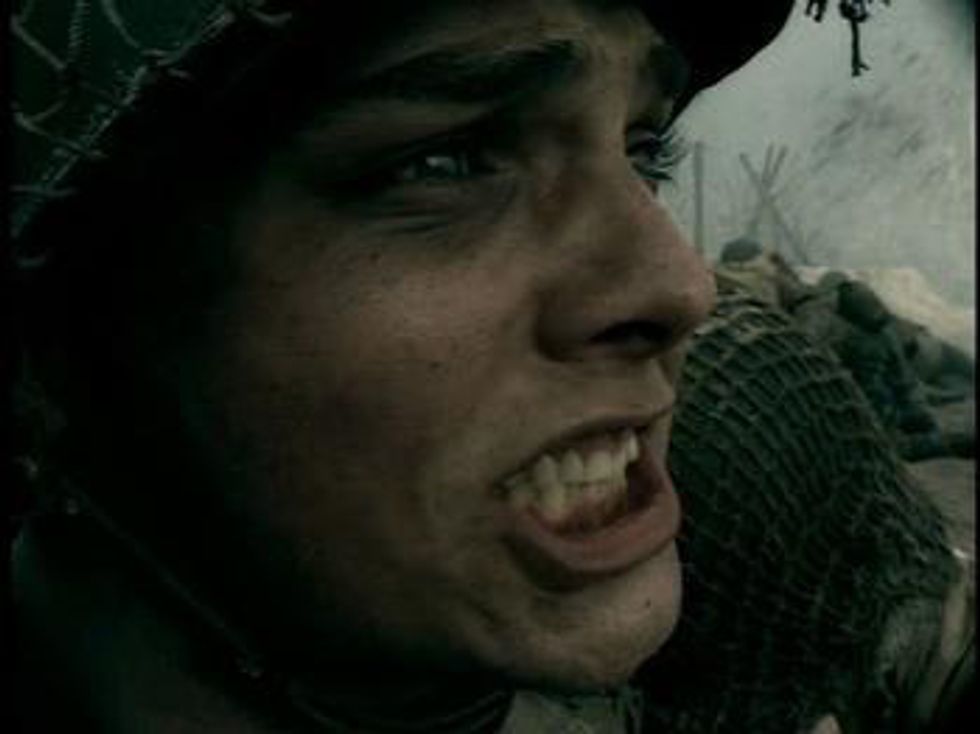If Green Day could take their hit album "American Idiot" and turn it into a rock-opera on Broadway, why can't My Chemical Romance with their hit album "The Black Parade"? The 2006 concept album tells the story of "The Patient," a man dying of cancer, as he looks back on his life. Here's my proposal for recreating MCR's masterpiece as a rock-opera.
- "The End"
The show opens on The Patient in his hospital bed as he's about to die. He speaks his last words, encouraging his family and friends not to mourn his death, but rather to celebrate it ("I'd encourage your smiles, I'll expect you won't cry"). As the song reaches its climactic finish, The Patient takes his last breath and just as he dies, the music transitions into... - "Dead!"
As the guitars blast, The Patient is transported to Purgatory, where other dead spirits greet him ("Have you heard the news that you're dead? No one ever had much nice to say, I think they never liked you anyway") and ask him to examine his life ("And if your heart stops beating, I'll be here wondering, 'Did you get what you deserve?"). - "This is How I Disappear"
The Patient looks down from above on his family in the aftermath of his death, focusing on his son. The two sing a duet about the pain of losing one's father, as The Patient tries (unsuccessfully) to communicate with his son. - "The Sharpest Lives"
Another duet... The Patient reveals his deep-rooted daddy-issues as he describes his father's reckless and absent lifestyle ("Well, it rains and it pours when you're out on your own. If I crash on the couch can I sleep in my clothes? Cause I've spent the night dancing. I'm drunk, I suppose") while his son turns toward a similar lifestyle of booze, drugs, and sex ("Give me a shot to remember and you can take all the pain away from me. A kiss and I will surrender. The sharpest lives are the deadliest to lead"). - "Welcome to the Black Parade"
Seeing his son struggle, The Patient reflects on his own relationship with his father, a miserable, mostly absent alcoholic. He realizes that although he loved his father dearly, their relationship was never a good one. After his father commits suicide, The Patient decides to live his life to the fullest, so that when he dies, he does so without the regrets that he could tell haunted his father ("Though you're dead and gone, believe me, your memory will carry on"). - "I Don't Love You"
As part of his make-the-most-of-life attitude, The Patient seeks out a wild night on the town with his friends, but the night ends up a disaster. Disheartened by the bad night, The Patient buys a prostitute, whom he immediately falls for. They delve into the same nightlife his father enjoyed as The Patient continues to see her. Eventually, he realizes she does not and cannot love him back, which she cements when she abruptly stands him up and refuses to return his calls. The song ends as, years later, The Patient meets a new girl and they fall in love. - "House of Wolves"
The Patient delves into the underground world his father lived in and his son is now experiencing. The three all sing about their night lives, as the scene shows their parallel activities. The father's and son's nights fade out as The Patient's cycle of wild night after wild night stops when his girlfriend issues him an ultimatum: lose the booze and drugs, or lose her. Desperate for her love, he vows to sober up; poor and uneducated, he decides to join the army, thinking it is his best hope to clean up his act. - "The Ghost of You" (no, it wasn't on The Black Parade, but not every song in "American Idiot" the musicalwas from that album, so go with it)
The Patient is shipped out to war, where he is traumatized when a bomb blows up one of his fellow soldiers. The Patient loses sleep over nightmares, replaying his friend's death over and over. The Patient eventually attempts suicide by pulling the plug on a grenade, but his plan fails when another soldier jumps on the grenade. The resulting explosion severely injures The Patient, who is then shipped back to America. - "Cancer"
The Patient is taken to a hospital for surgery, but the doctors discover that he has terminal cancer. The Patient laments his fate in a duet with the girl from before, his now-wife, while his children look on from the bedside. - "Mama"
The Patient, bitter over his diagnosis and his seemingly wasted life, takes his anger out through berating his mother, whom he unfairly blames for his problems growing up (when really they were the byproduct of his daddy-issues). He tells her everything--the prostitute, the drugs, war--and breaks down, believing he has failed her as a son. The song ends with the mother having a heart attack and dying. - "Helena (Song Long and Good Night)" (same disclaimer as "The Ghost of You")
The Patient attends his mother's funeral, filled with sorrow and regret. As her ghost rises and sings a duet with her son, he realizes that he treated his mother unfairly and weeps as she is buried. - "Sleep"
Sick and deeply depressed over his mother and cancer, The Patient stays in bed, lamenting his failings and contemplating suicide again ("So shut your eyes, kiss me goodbye, and sleep"). He is tormented again by nightmares, but decides against suicide since he has so little time left to live anyways. - "Teenagers"
The Patient's reverie ends and we return to the present, the Patient still in Purgatory. His son gets into trouble with friends and they end up getting arrested and sent to jail. - "Disenchanted"
The Patient, upset by his son's mistakes, sings about the unfairness of life and expresses his own regrets, feeling that his life was ultimately wasted ("You're just a sad song with nothing to say about a lifelong wait for a hospital stay"). - "Famous Last Words"
The Patient's father appears in Purgatory, asking his son's forgiveness while, on Earth, The Patient's wife and son both long bitterly for their husband/father to return. The Patient forgives his father and his mother appears and forgives The Patient for his shortcomings and his anger toward her. As his wife and son lie down to sleep, The Patient's spirit appears to both, offering them comfort and encouragement, imploring them not to give into their bitterness but to face the world bravely and carry on living ("I am not afraid to keep on living, I am not afraid to walk this world alone"). The song and show end as The Patient ascends from Purgatory into Heaven, flanked on either side by his mother and father.


























